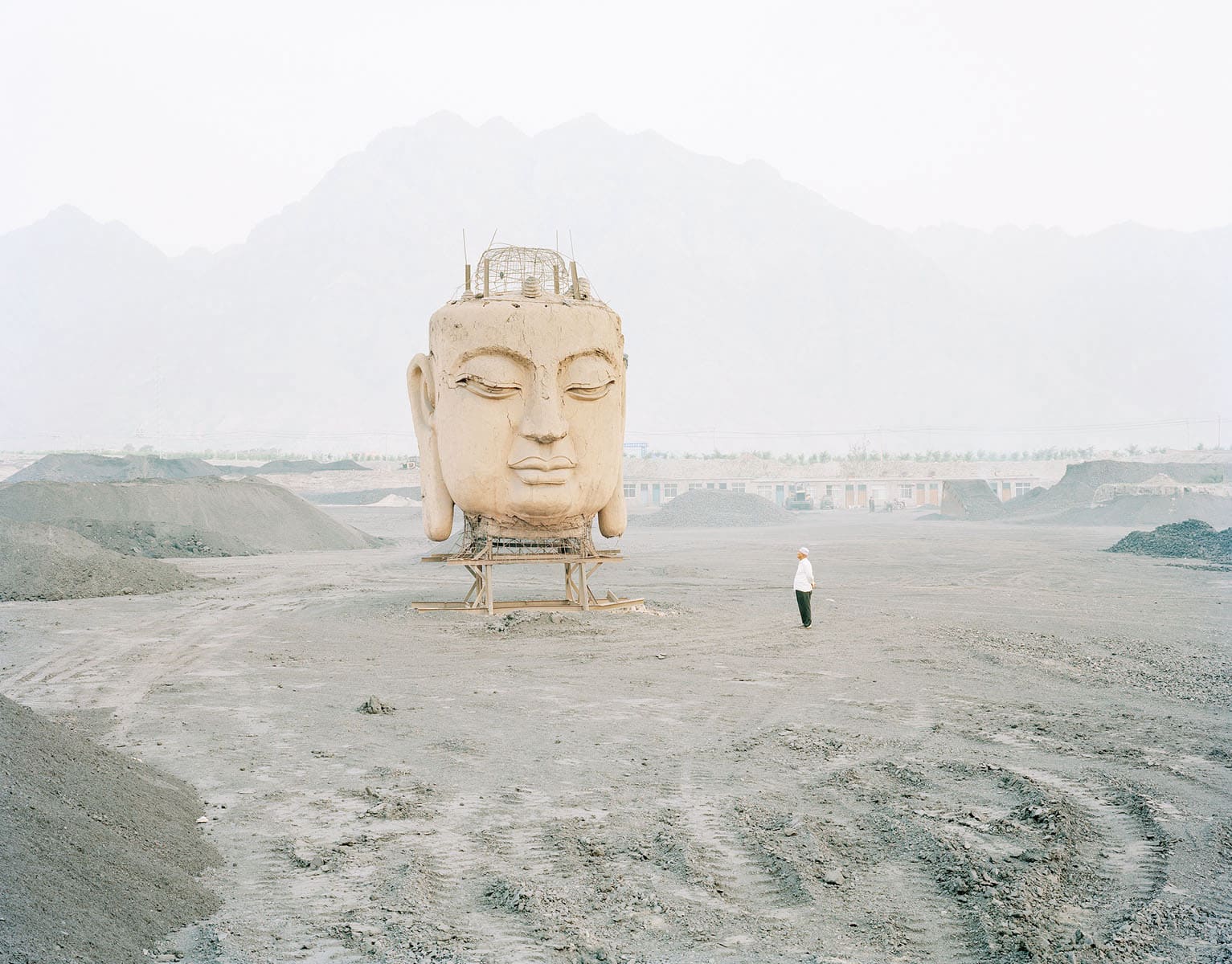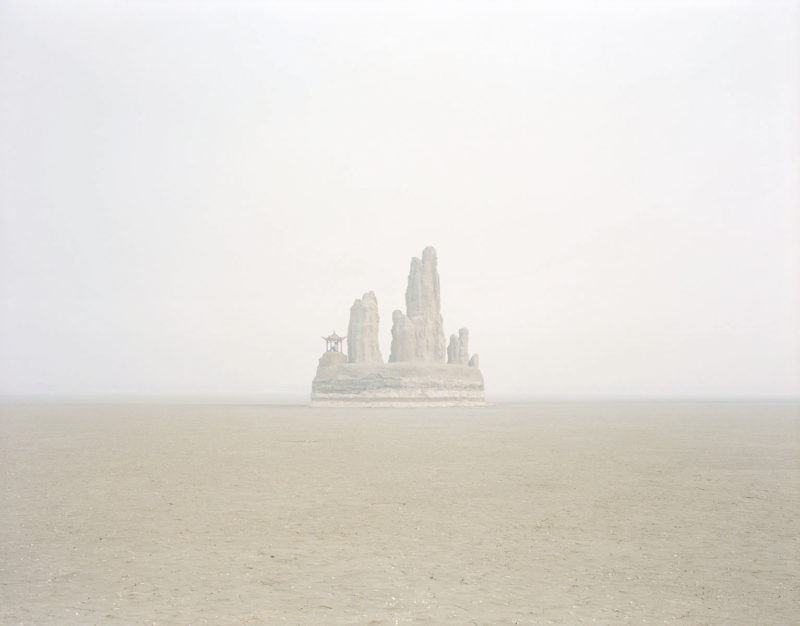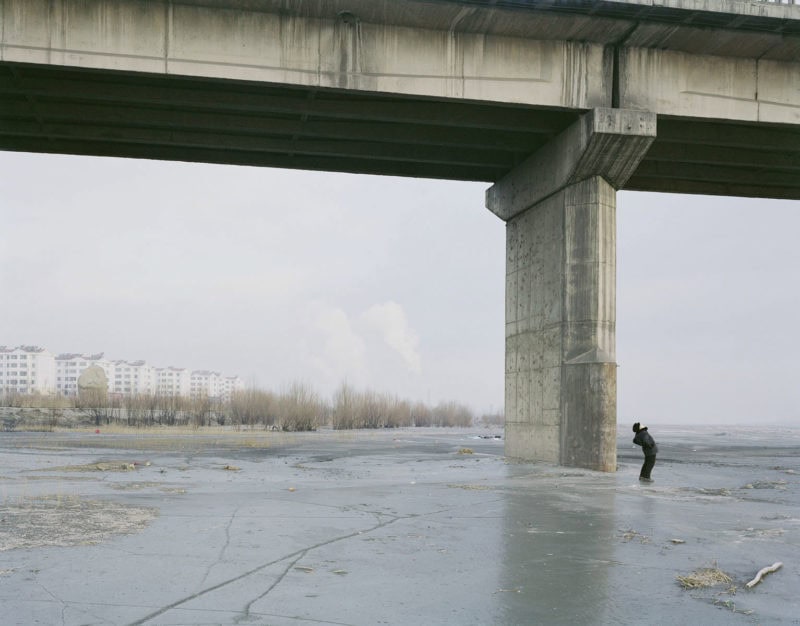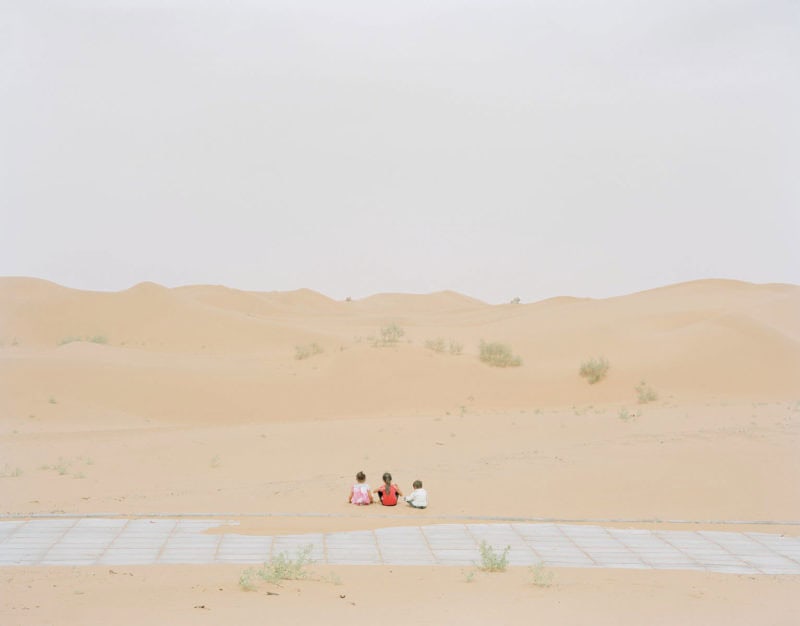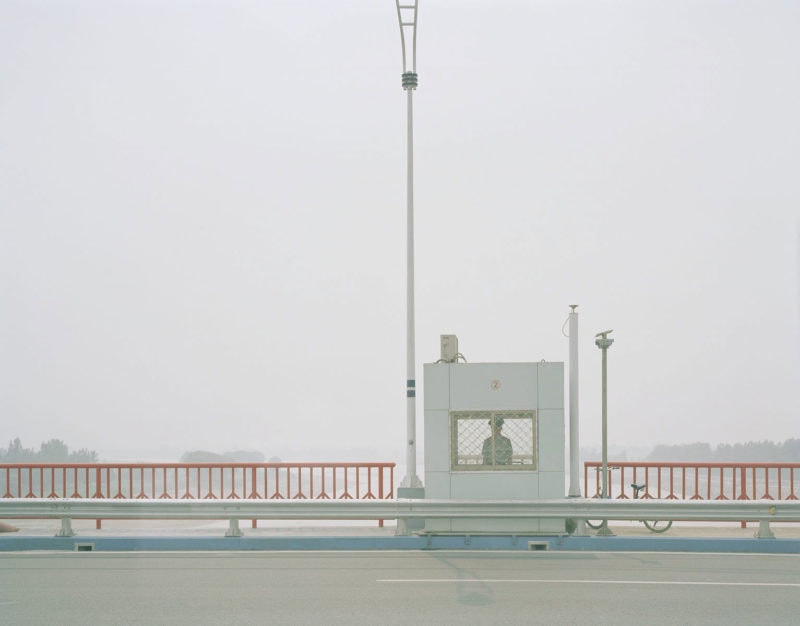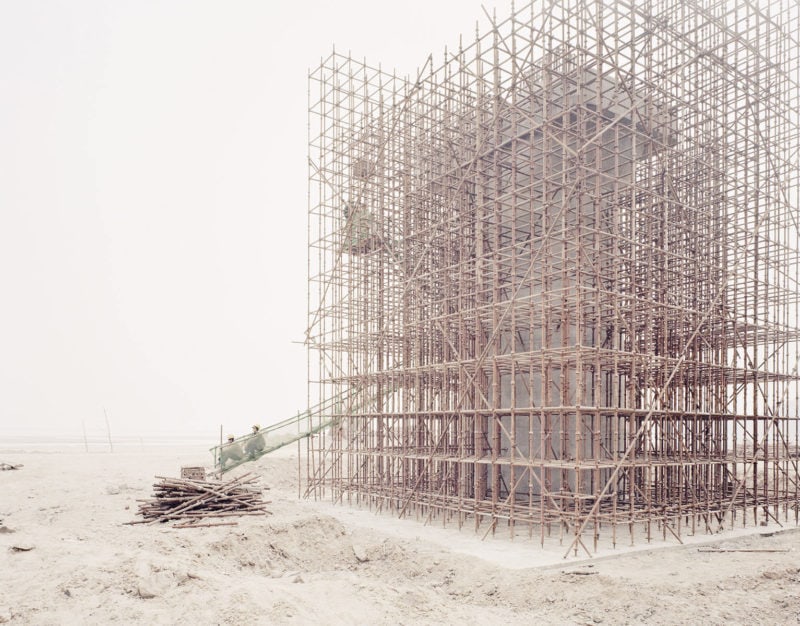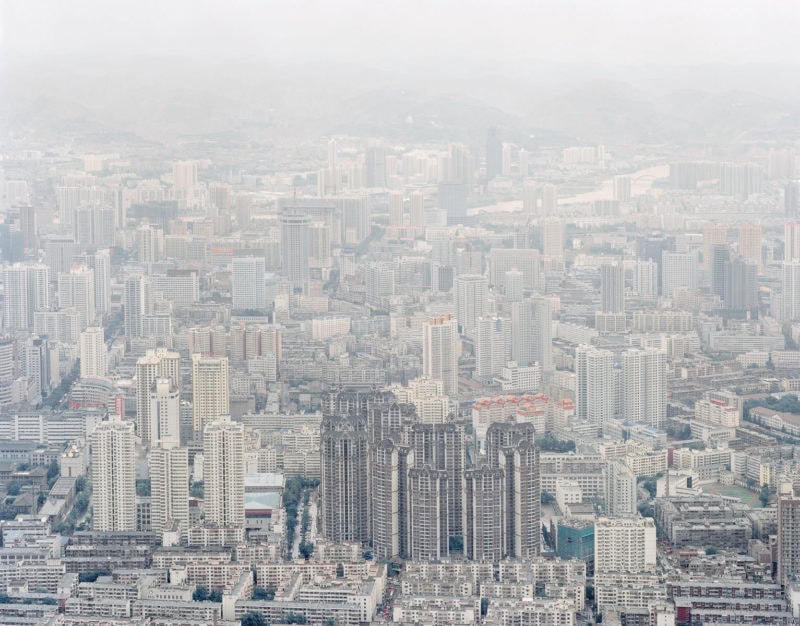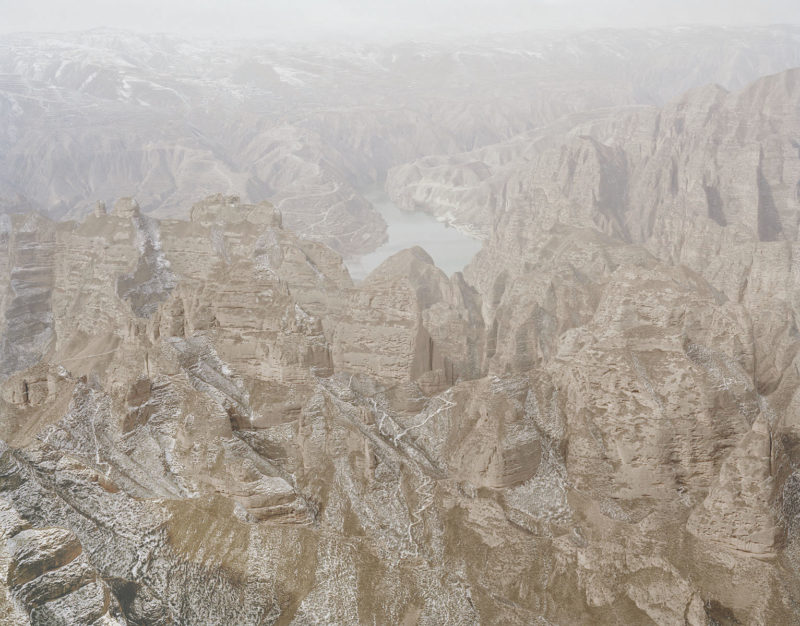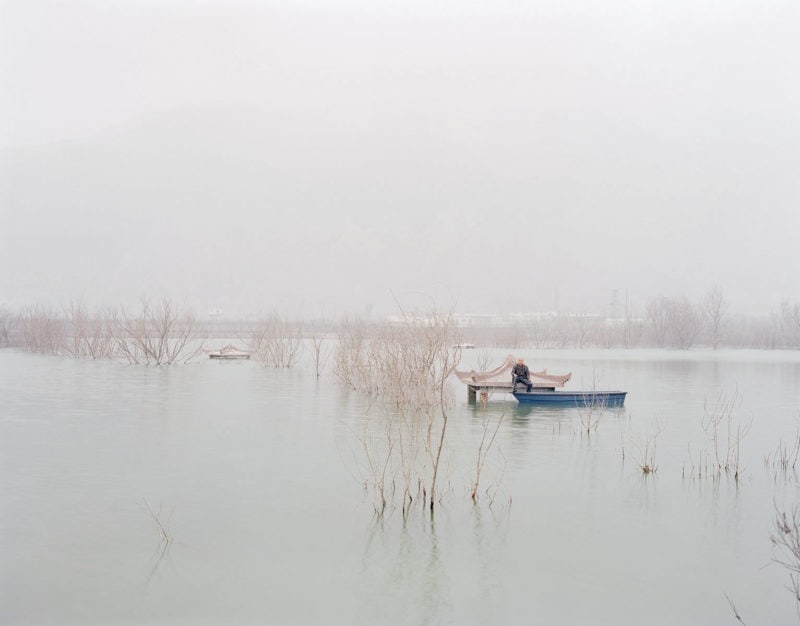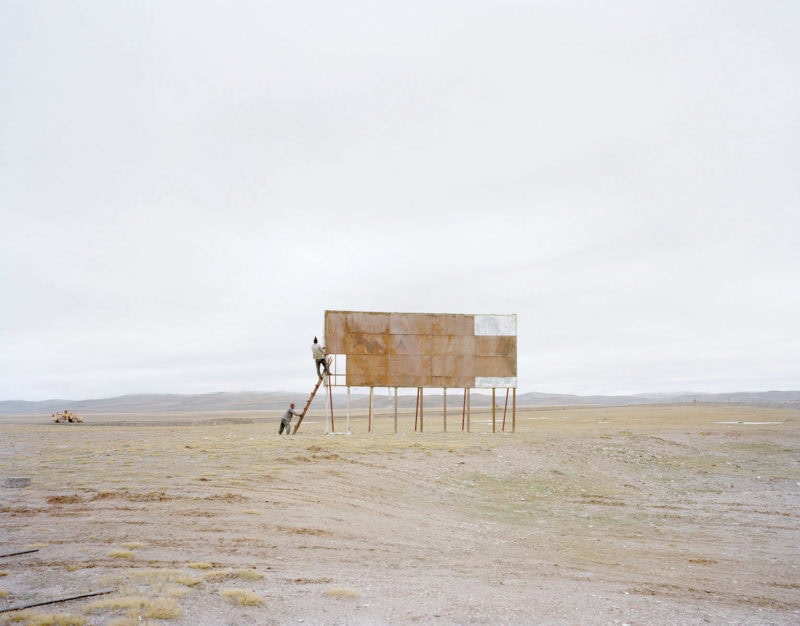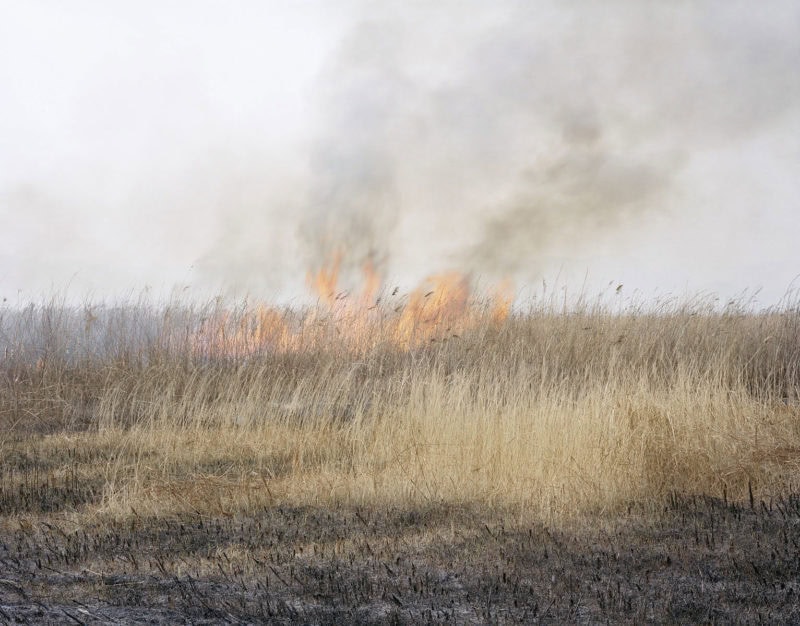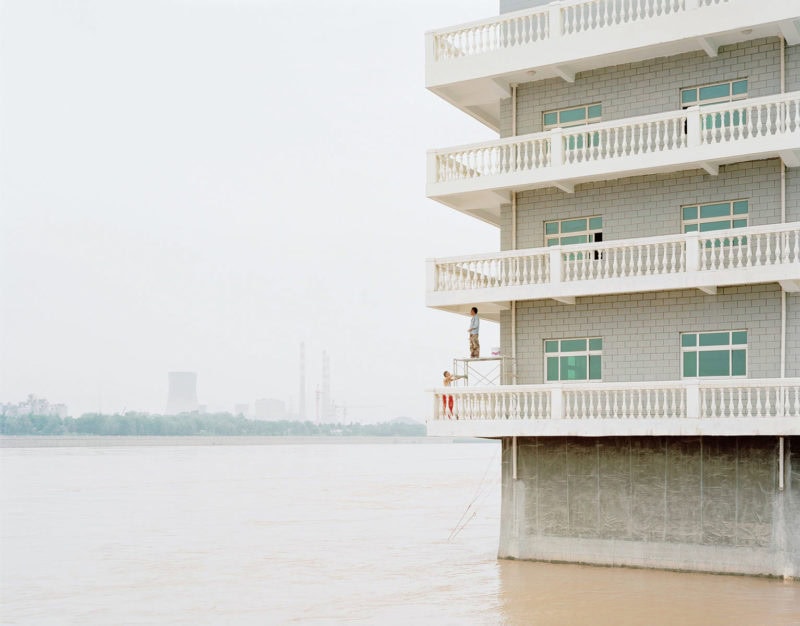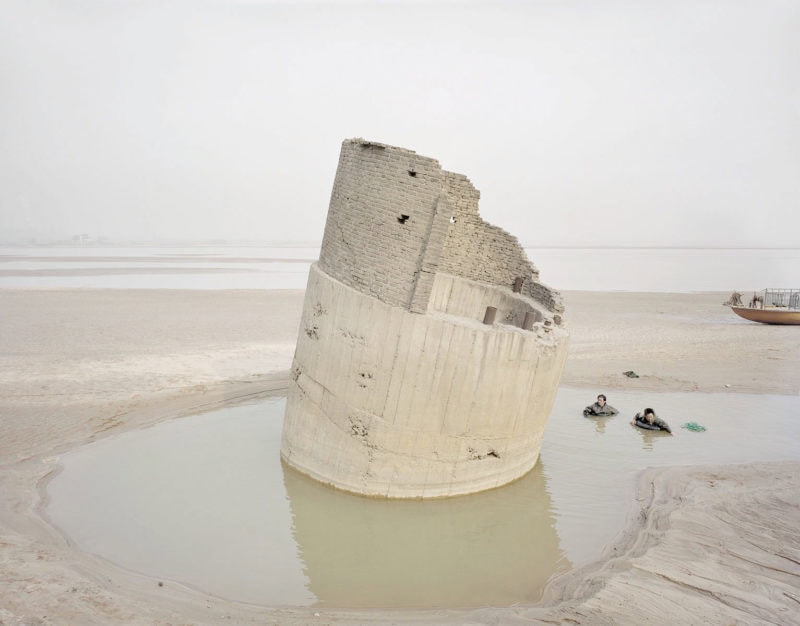Zhang Kechun was born in 1980 in Sichuan province, China. He now lives and works in Chengdu. He won the National Geographic Picks Global Prize in 2008 and was nominated by Three Shadow Photo Award in 2012, by Sony World Photography Awards in 2012 and 2013 and by the Prix HSBC Pour la Photographie 2014 and also from the Arles Photo Festival Discovery Award in 2014. His works were exhibited on 2012 CAFAM-Future Exhibition, 2013 Beijing Photo Biennial, 2013 PHOTOQUAI World Photography Biennale, 2014 Arles Photo Festival, 2014 Beijing +3 Gallery solo exhibition. His works were reported by many medias, such as Time, BBC News, Telegraph Magazine, China Photo Magazine and so on but also have been collected internationally by many other museums and private Collectors from U.S.A, France, Germany, Japan and China, such as Chinese Image and Video Archive, Canada; Williams College Museum of Arts, USA; CAFA Art Museum, China.
About ‘The yellow river’ – words by Zhang Kechun:
Mountains and rivers are very significant for Chinese people. In this country, there is a cultural awareness that says mountains are virtuous and rivers are moral.
I was inspired to carry out this project after reading the novel Rivers of the North by Zhang Chengzhi. The book is written in a stream-of-consciousness style and its story follows the paths of many rivers across China. Attracted by the powerful words of the novel, I decided to take a walk along the Yellow River in order to find the root of my soul. Along the way, the calm flow of my mind became flooded with the hectic thoughts and ceaseless stream of reality. I felt a profound pessimism.
Nevertheless, as a vast country with a long history, China’s future is always bright. The country has food for its people and the power of creation that can cultivate strong citizens. From this point of view, it seems, the future is optimistic.
Trying to balance these two sides, my new work explores the landscapes of China, capturing the ecology of its magnificent natural phenomena. The tiny human figures, insignificant when set against the vast natural forms, are inspired by Chinese artistic tradition. My aim is to create a modern point of contact for our contemporary and sociologically concerned eye.
